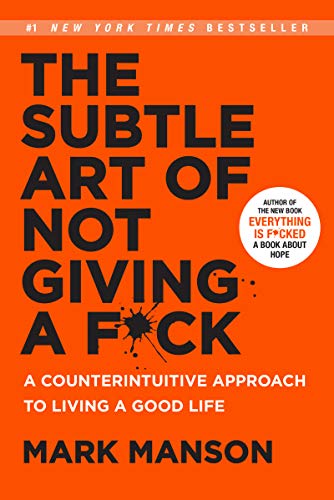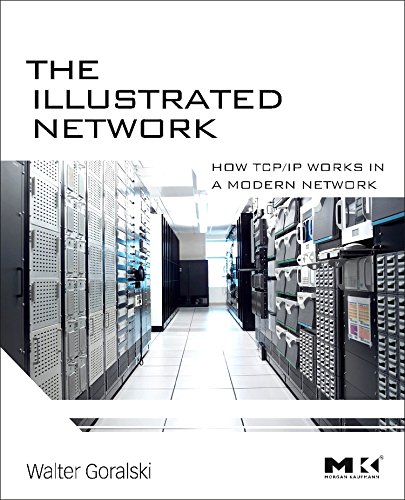(Part 3) Top products from r/army
We found 22 product mentions on r/army. We ranked the 605 resulting products by number of redditors who mentioned them. Here are the products ranked 41-60. You can also go back to the previous section.
41. 63 Days and a Wake-Up: Your Survival Guide to United States Army Basic Combat Training
Sentiment score: 1
Number of reviews: 1
Used Book in Good Condition
 Show Reddit reviews
Show Reddit reviews43. D Day: June 6, 1944: The Climactic Battle of World War II
Sentiment score: 0
Number of reviews: 1
Simon Schuster
 Show Reddit reviews
Show Reddit reviews44. The Subtle Art of Not Giving a F*ck: A Counterintuitive Approach to Living a Good Life
Sentiment score: -1
Number of reviews: 1
HARPER ONE
 Show Reddit reviews
Show Reddit reviews46. Afgantsy: The Russians in Afghanistan 1979-89
Sentiment score: -1
Number of reviews: 1
 Show Reddit reviews
Show Reddit reviews47. Man, the State, and War: A Theoretical Analysis
Sentiment score: -1
Number of reviews: 1
Columbia University Press
 Show Reddit reviews
Show Reddit reviews48. The American Way of War: A History of United States Military Strategy and Policy
Sentiment score: -1
Number of reviews: 1
 Show Reddit reviews
Show Reddit reviews49. Hell In A Very Small Place: The Siege Of Dien Bien Phu
Sentiment score: -1
Number of reviews: 1
Da Capo Press
 Show Reddit reviews
Show Reddit reviews50. Afghanistan: A Military History from Alexander the Great to the War against the Taliban
Sentiment score: -1
Number of reviews: 1
 Show Reddit reviews
Show Reddit reviews51. The Utility of Force: The Art of War in the Modern World
Sentiment score: -1
Number of reviews: 1
 Show Reddit reviews
Show Reddit reviews52. The Generals: American Military Command from World War II to Today
Sentiment score: 0
Number of reviews: 1
 Show Reddit reviews
Show Reddit reviews53. The Unforgiving Minute: A Soldier's Education
Sentiment score: 1
Number of reviews: 1
 Show Reddit reviews
Show Reddit reviews54. Generation Kill: Devil Dogs, Ice Man, Captain America, and the New Face of American War
Sentiment score: -1
Number of reviews: 1
 Show Reddit reviews
Show Reddit reviews55. SUCCESS! for the EMT-Basic (2nd Edition)
Sentiment score: 1
Number of reviews: 1
 Show Reddit reviews
Show Reddit reviews56. TCP/IP Illustrated, Volume 1: The Protocols (2nd Edition) (Addison-Wesley Professional Computing Series)
Sentiment score: 1
Number of reviews: 1
Addison-Wesley Professional
 Show Reddit reviews
Show Reddit reviews57. Morndew 100 PCS United States Air Force Emblem Confetti for Military Themed Party USAF Promotion Retirement Party Wedding Party Birthday Party Decorations
Sentiment score: 1
Number of reviews: 1
Our confetti is made from premium quality tissue paper and is biodegradable.To promote a celebratory atmosphere, decoration for wedding, birthday, bridal shower, Valentines Day, baby shower, parties and other occasions.It is crafted in chic and attractive ,will help you to create a beautiful cake sc...
 Show Reddit reviews
Show Reddit reviews




When do you ship? I ship on Aug 13.
I bought this one bc its recently published and cheap with good ratings:
http://www.amazon.com/Emergency-Medical-Technician-Practice-Preparation/dp/0738610062/ref=sr_1_2?ie=UTF8&qid=1368246529&sr=8-2&keywords=emt+basic
But other good ones are (buy it used to save :p):
http://www.amazon.com/McGraw-Hills-EMT-Basic-Second-Edition-DiPrima/dp/0071751270/ref=sr_1_4?ie=UTF8&qid=1368246529&sr=8-4&keywords=emt+basic
http://www.amazon.com/SUCCESS-EMT-Basic-Edition-Joseph-Mistovich/dp/0132253968/ref=sr_1_5?ie=UTF8&qid=1368246529&sr=8-5&keywords=emt+basic
I like the hula hoop idea.
My go to suggestion is a copy of Basic Training for Dummies with Air Force Confetti between the pages and a Marine Corps bookmark marking Chapter 22: Ten Ways to Make Your Drill Instructor Happy.
And make sure to address it using Navy Rank. They love that shit.
Here are a couple books I have. The author of the first one was a teacher of mine a while back. She really knows her stuff. That book in particular is good for explaining all the protocols involved and how the packets are put together.
http://www.amazon.com/TCP-Illustrated-Protocols-Addison-Wesley-Professional/dp/0321336313/ref=sr_1_1?s=books&ie=UTF8&qid=1382132562&sr=1-1&keywords=tcp+ip+illustrated
This second book is more general networking stuff. Still some really good reference material.
http://www.amazon.com/Illustrated-Network-Modern-Kaufmann-Networking/dp/0123745411/ref=sr_1_7?s=books&ie=UTF8&qid=1382132562&sr=1-7&keywords=tcp+ip+illustrated
And for operating system basics, this is a good all-rounder:
http://www.amazon.com/Operating-Concepts-Seventh-Abraham-Silberschatz/dp/0471694665/ref=sr_1_4?s=books&ie=UTF8&qid=1382132818&sr=1-4&keywords=operating+system+concepts
And for *nix because it is important and nobody thinks about it:
http://www.amazon.com/UNIX-Linux-System-Administration-Handbook/dp/0131480057/ref=sr_1_1?s=books&ie=UTF8&qid=1382132917&sr=1-1&keywords=Linux+System+administration
http://www.amazon.com/gp/aw/d/0595425119
The author of this book is a fantastic guy who went through basic later in life and wrote a modern day version. Might be a good lead for you.
This guy did it, then led an Infantry platoon in Afghanistan, and wrote a pretty solid book.
A good book on this phenomena (The Marshall System) is "The Generals" by Tom Ricks
https://www.amazon.com/Generals-American-Military-Command-World/dp/0143124099
Actually, the book is by Harold Coyle, part of his series of modern armor, "Trial by Fire" https://smile.amazon.com/Trial-Fire-Harold-Coyle/dp/0671796585/ref=sr_1_5?ie=UTF8&qid=1487182297&sr=8-5&keywords=%22Trial+by+fire%22
It's not a bad book overall, from my memory. Deals with some interesting issues and problems that are pretty realistic (helps that Coyle's a former armor officer).
You also want to pick up a copy of King of the Killing Zone by Orr Kelly. It's old and out of date, but it will give you a good feel for what tech was developed and how it was deployed.
This reminds me of Stephen Ambrose's D-Day. The amount of planning, coordinating, training, preparation that went into D-Day alone is nuts.
It's a long read, and it can be dry, yet absolutely fascinating to realize what kind of effort went into that operation.
http://www.amazon.com/Chickenhawk-Robert-Mason/dp/0143035711
Afghanistan: A Military History from Alexander the Great to the War against the Taliban
Ghost Wars: The Secret History of the CIA, Afghanistan, and Bin Laden, from the Soviet Invasion to September 10, 2001
The Middle East Then and Now: The History of Israel, Iran, Syria and Afghanistan
A Journey through Afghanistan
Read this book: https://www.amazon.com/Subtle-Art-Not-Giving-Counterintuitive/dp/0062457713
Practice, you’ll get better with time. I approach every task I’m given the same way: I do my best at it, and if I fail then I learn what I’m not good at. That tells me what to work on for the next time I do it. You can get a lot of self development done that way.
Fake it till you make it man. Soldiers look at you and see an NCO. If you try to project what you think they should be seeing, then eventually you’ll get used to acting that way and it will become normal. Nobody has access to the inside of your head but you, it’s okay to be nervous or freak out to yourself, but what you project outwardly is what counts.
Push to/Battle of Badhdad: Generation Kill (The book), written by a reporter assigned to Marine Recon: https://www.amazon.com/Generation-Kill-Captain-America-American/dp/0425224740
Koran Kalashnikov and Laptop: The Neo-Taliban Insurgency in Afghanistan 2002-2007 https://www.amazon.com/dp/0199326355/ref=cm_sw_r_cp_api_Pw6rzbGW39TW2
War, Politics and Society in Afghanistan, 1978-1992 https://www.amazon.com/dp/0878407588/ref=cm_sw_r_cp_api_lx6rzb509WDTW
Afgantsy: The Russians in Afghanistan 1979-89 https://www.amazon.com/dp/019983265X/ref=cm_sw_r_cp_api_dz6rzbDMP6KG2
No Good Men Among the Living: America, the Taliban, and the War through Afghan Eyes https://www.amazon.com/dp/B00GVRVAXM/ref=cm_sw_r_cp_api_VB6rzbJ0EBR87
The Afghan Campaign: A Novel https://www.amazon.com/dp/0767922387/ref=cm_sw_r_cp_api_WC6rzbEDZ3B3Z
Afghanistan: A Cultural and Political History (Princeton Studies in Muslim Politics) https://www.amazon.com/dp/0691154414/ref=cm_sw_r_cp_api_jD6rzb6MQ4J2N
"Hell in a Very Small Place" taught me how insane they were in Vietnam. They had guys make there first Airborne jump, into an encircled DZ. Like holy shit.
Also made you appreciate how good of a general Giap was. One of the best books about a battle I've ever read. The author sadly died in Vietnam when he was reporting on the American effort there.
https://www.amazon.com/Hell-Very-Small-Place-Siege/dp/030681157X/ref=sr_1_1?ie=UTF8&qid=1538095807&sr=8-1&keywords=hell+in+a+very+small+place
Here what I've picked up
On War by Clausewitz
MCDP 1 Warfighting
FMFRP 12-18 Mao Tse-tung on Guerrilla Warfare
FMFRP 12-13 Maneuver in War
On Grand Strategy
The Art of War by Baron De Jomini
Just and Unjust Wars (apparently it's on the Commandant's reading list too)
Soviet Military Operational Art: In Pursuit of Deep Battle
Out of the Mountains: The Coming Age of the Urban Guerrilla
Seapower: A Guide for the Twenty-First Century
The Bear Went Over the Mountain: Soviet Combat Tactics in Afghanistan
Blitzkrieg to Desert Storm: The Evolution of Operational Warfare
Why Air Forces Fail: The Anatomy of Defeat
Deep Maneuver: Historical Case Studies of Maneuver in Large-Scale Combat Operations (Volume 5)
JP-1 Doctrine for the Armed Forces of the United States
DoD Law of War Manual
The Soviet Army: Operations and Tactics
Black Flags: The Rise of ISIS
Napoleonic Warfare: The Operational Art of the Great Campaigns
The Air Force Way of War: U.S. Tactics and Training after Vietnam
Strategy: A History
LikeWar: The Weaponization of Social Media
The Utility of Force: The Art of War in the Modern World
MCTP 3-01C Machine Guns and Machine Gun Gunnery
Man, the State, and War: A Theoretical Analysis
The U.S. Army in the Iraq War – Volume 1: Invasion – Insurgency – Civil War, 2003-2006
The U.S. Army in the Iraq War – Volume 2: Surge and Withdrawal, 2007-2011
Illusions of Victory: The Anbar Awakening and the Rise of the Islamic State
Concrete Hell: Urban Warfare From Stalingrad to Iraq
The American Way of War: A History of United States Military Strategy and Policy
Supreme Command: Soldiers, Statesmen, and Leadership in Wartime
This is all I can name off the top of my head right now
So I wrote my thesis paper on Chinese militarization in the South China Sea and while entertaining, I see a lot of issues with his whole assessment, primarily;
> Army War College Study #1
> Army War College Study #2
> Neither discusses the economic ties in depth, but they both acknowledge that actual war between the two countries is a horrible idea. For the economic ties, see Debating China. Particularly the sections from Naughton/Yang, Twomey/Hui, and Xinbo/Green.
> Just one of many examples
> Air Sea Battle Concept in depth. Note, this theory hasn't been tested. If the US even possess the capability to shut down Chinese C4ISR networks is debated. RAND published a study on it, but I can't find it in my bookmarks.
Again I want to stipulate that this type of conflict is unlikely, and even if it were to occur I don't see it lasting longer than a few days at the most.
EDIT: Wanted to add more sources for some of my information.
> Discusses A2/AD strategies throughout the history of warfare and how they either failed or were overcome. Discusses China's use of A2/AD strategies in the latter sections of the book.
> Discusses the rise of a Chinese blue water navy and how the US should counter that threat.
> Covers the geopolitical dispute over the SCS from historical, legal, resource driven, geostrategic, and military aspects.
> Discusses the rise of China with regard to Alfred T. Mahan's sea power theories. Offers comparisons to the Kaiser's rise in Germany.